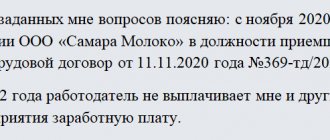1. If there is no basis for initiating a criminal case, the head of the investigative body, the investigator, the inquiry body or the inquirer shall issue a resolution to refuse to initiate a criminal case. Refusal to initiate a criminal case on the grounds provided for in paragraph 2 of part one of Article 24 of this Code is permitted only in relation to a specific person.
1.1. A decision to refuse to initiate a criminal case in connection with a reasoned decision of the prosecutor to send the relevant materials to the preliminary investigation body to resolve the issue of criminal prosecution based on violations of criminal law identified by the prosecutor, made on the basis of paragraph 2 of part two of Article 37 of this Code, may be made only with the consent of the head of the investigative body.
2. When making a decision to refuse to initiate a criminal case based on the results of checking a report of a crime related to the suspicion of its commission by a specific person or persons, the head of the investigative body, the investigator, the inquiry body are obliged to consider the issue of initiating a criminal case for knowingly false denunciation against a person who has declared or disseminated a false report of a crime.
3. Information about the refusal to initiate a criminal case based on the results of checking a report of a crime disseminated by the media is subject to mandatory publication.
4. A copy of the decision to refuse to initiate a criminal case is sent to the applicant and the prosecutor within 24 hours from the date of its issuance. At the same time, the applicant is explained his right to appeal this decision and the procedure for appealing.
5. The refusal to initiate a criminal case may be appealed to the prosecutor, the head of the investigative body or to the court in the manner established by Articles 124 and 125 of this Code.
6. Having recognized the decision of the body of inquiry, the interrogator on the refusal to initiate a criminal case as illegal or unfounded, the prosecutor cancels it and sends the corresponding resolution to the head of the body of inquiry with his instructions, setting a deadline for their execution. Having recognized the refusal of the head of the investigative body, the investigator to initiate a criminal case as illegal or unfounded, the prosecutor, no later than 5 days from the receipt of the materials for verifying the crime report, cancels the decision to refuse to initiate a criminal case, about which he issues a reasoned resolution outlining the specific circumstances subject to additional verification, which, together with the specified materials, is immediately sent to the head of the investigative body. Having recognized the refusal of the head of the investigative body, the investigator to initiate a criminal case as illegal or unfounded, the corresponding head of the investigative body cancels it and initiates a criminal case or sends materials for additional verification with his instructions, setting a deadline for their execution. 7. Having recognized the refusal to initiate a criminal case as illegal or unfounded, the judge makes a corresponding decision, sends it for execution to the head of the investigative body or the head of the inquiry body and notifies the applicant about this.
Commentary on Article 148 of the Code of Criminal Procedure of the Russian Federation
1. Refusal to initiate a case is the final decision at the stage of initiating a case, which ends the criminal proceedings as a whole. In this regard, the refusal to initiate a case is the main criminal procedural decision that finally resolves the criminal case (material). The decision to refuse to initiate a case has a preclusive meaning (from the Latin praeclusio - closing) - it is the basis for terminating future criminal prosecution against specific persons on the same suspicion (clause 5, part 1, article 27 of the Code of Criminal Procedure).
2. Part 1 of the commented article connects the refusal to initiate a case with the lack of grounds for initiating it. This provision requires a restrictive interpretation. The basis for refusal to initiate a criminal case as the main procedural decision is one of the circumstances specified in Art. 24 of the Code of Criminal Procedure, reliably established using criminal procedural evidence. On the grounds for refusing to initiate a case, see com. to Art. 24. The lack of sufficient data on the signs of a crime does not exempt the criminal prosecution authorities from taking measures to establish the crime and expose the perpetrators (Part 2 of Article 21 of the Code of Criminal Procedure). If, after the expiration of the preliminary verification of the crime report, it remains unclear whether a crime has been committed, then a criminal case must be opened to investigate the alleged event. Unlike the grounds for refusing to initiate a case, the grounds for initiating a case are probable. See com. to part 2 art. 140.
A manifestation of the rule about the need to reliably establish the grounds for refusing to initiate a criminal case is the requirement of Part 1 of Art. 148 to identify the specific person who committed the act in order to refuse to initiate a case due to the absence of signs of a crime in the act (clause 2, part 1, article 24 of the Code of Criminal Procedure). Apparently, the legislator believed that a reliable establishment of the grounds for refusing to initiate a case ensures the rights of the victim (for whom it is easier to go to court for compensation for damage through civil proceedings). However, in practice this creates problems and sometimes leads to the opposite effect. The requirement to identify the persons who committed the act turns out to be excessive, for example, when it is of minor significance (Part 2 of Article 14 of the Criminal Code), when the absence of elements in the act is obvious, i.e. and without a face. By obliging the criminal prosecution authorities to identify all offenders, they were thereby doomed to the impossible. As a result, law enforcement officers try to circumvent the ban using two illegal methods: either they refuse to accept a statement of a crime, or they refuse to initiate a case due to the absence of a crime event (allegedly there was an event, but the event was not a crime, but another non-dangerous act - an offense). In fact, an act without public danger (insignificance) is the absence of an element of the objective side of the crime, i.e. a classic example of an act that does not contain elements of a crime. A different approach leads to a logical contradiction: if the person is not identified, then the event is missing, and if established, then the crime is missing. An unjustified refusal to initiate a case due to the absence of an event further violates the rights of the victim, as it creates obstacles for subsequent administrative and civil procedural proceedings. The least damaging way out of this problem is found by those investigators and interrogators who, in the decision to refuse to initiate a case, simply do not refer to the lack of corpus delicti, indicating the substantive basis - the insignificance of the act (Part 2 of Article 14 of the Criminal Code). To refuse to initiate a case due to the lack of corpus delicti, it is necessary to indicate exactly what crime it is, with reference to the relevant paragraph, part, or article of the Criminal Code.
3. Taking into account the official interpretation of the Constitution of the Russian Federation (Articles 45, 46), given by the Constitutional Court of the Russian Federation (Resolution of the Constitutional Court of the Russian Federation dated April 29, 1998 N 13-P; Determination of the Constitutional Court of the Russian Federation dated July 6, 2000 N 191-O; Resolution of the Constitutional Court of the Russian Federation dated 02/18/2000 N 3-P), all interested parties (whose rights are affected by the decision to refuse to initiate a case) have the right to familiarize themselves with this decision and the materials of the preliminary inspection. Therefore, a copy of the decision must be sent to the victim, even if he is not the applicant (clause 13, part 2, article 42 of the Code of Criminal Procedure); the person against whom the application was filed; a person in respect of whom the decision made unfavorable conclusions (for example, guilt in an administrative offense).
4. The Code provides for two procedures for canceling a decision to refuse to initiate a case: 1) the investigator’s decision is canceled by the head of the investigation unit both on his own initiative (clause 2, part 1, article 39), and based on the results of consideration of the prosecutor’s submission (part 6, art. 148 <1>), complaints of an interested person (Article 124), court decision (Article 125). When canceling the decision to refuse to initiate a case, the head of the investigation authority has the right to personally initiate the case; 2) the decision of the inquirer, the inquiry body is canceled by the prosecutor on his own initiative (clause 6, part 2, article 37, part 6, article 148), or based on the results of consideration of the complaint (art. 124), or at the request of the head of the inquiry unit (clause 4 part 1 article 40). In this case, the prosecutor (according to Federal Law No. 87-FZ of June 5, 2007) does not have the right to personally initiate a criminal case, but must, with his instructions, send the relevant materials to the head of the inquiry body, setting a specific deadline for conducting an additional inspection, taking into account the volume of necessary verification actions.
——————————— <1> In paragraph 1.3 of the Order of the Prosecutor General’s Office of the Russian Federation dated 06/02/2011 N 162 “On the organization of prosecutorial supervision over the procedural activities of preliminary investigation bodies,” prosecutors are instructed to ensure verification of everyone (i.e., everyone) procedural decision to refuse to initiate criminal proceedings. See also clause 1.6 of the Order of the Investigative Committee of the Russian Federation dated January 15, 2011 N 1 “On the organization of procedural control in the Investigative Committee of the Russian Federation.”
However, the law does not determine the maximum duration of verification of reports of crimes after the cancellation of the decision to refuse to initiate a case. The establishment of such a period is attributed to the discretionary powers of the prosecutor or the head of the investigation team. Departmental regulations of the prosecutor's office require that a reasonable period of such inspection be observed <1>, and the RF IC prescribes such a period in accordance with the requirements of Part 3 of Art. 144 of the Code of Criminal Procedure up to 10 days, and if it is necessary to carry out documentary checks, audits, studies of documents, objects, corpses at the request of the investigator - up to 30 days; further extension of the inspection period is excluded <2>. Meanwhile, verification of reports of crimes cannot replace a preliminary investigation, therefore it seems that its total period, including the initial verification and all repeated additional verifications (each of which, in the literal sense of clause 1.7 of the Order of the RF IC dated January 15, 2011 N 1, can be up to 30 days), must be less than the period of an ordinary inquiry - a shortened form of investigation (30 days).
——————————— <1> See: paragraph 1.3 of the Order of the Prosecutor General’s Office of the Russian Federation dated June 2, 2011 N 162. <2> Paragraph 1.7 of the Order of the Investigative Committee of the Russian Federation dated January 15, 2011 N 1 “On the organization of procedural control in Investigative Committee of the Russian Federation."
5. On the court's consideration of a complaint against the refusal to initiate a case, see com. to Art. 125. Part 7 of the commented article as ed. Federal Law No. 87-FZ dated 06/05/2007 establishes an unnecessarily cumbersome procedure for canceling the decision of the inquiry officer or the inquiry body to refuse to initiate a case based on a court decision, which is sent to the head of the inquiry body. Only the prosecutor is authorized to cancel this resolution (clause 6, part 2, article 37), and not the head of the inquiry body or the head of the inquiry unit. The latter has the right only to submit a petition to the prosecutor to cancel the illegal or unfounded decisions of the investigator to refuse to initiate a criminal case (clause 4, part 1, article 40.1). Considering that in many investigative bodies there are no specialized investigative units and their heads at all (see com. to Art. 40), it seems correct to send the court decision to the prosecutor on the basis of the above norm of Art. 37 Code of Criminal Procedure.
Nuances
When making a decision, according to the rules of Art. 148 of the Code of Criminal Procedure of the Russian Federation, based on the results of studying reports of crimes related to the suspicion of their commission by specific individuals, the head of the investigative unit, the inquiry department, and the investigator should consider the issue of opening proceedings for false denunciation in relation to subjects who declared or disseminated data that does not correspond to reality. A copy of the resolution drawn up in connection with the refusal to initiate a case must be sent to the prosecutor and the applicant before the expiration of 24 hours from the date of issuance. The latter is then explained the right to challenge the act and the procedure for appealing is explained.
Decisions on the complaint
If the decision of the head of the investigative unit/investigator is recognized as unfounded and illegal, the prosecutor cancels it within 5 days. The period is calculated from the moment the procedural document is received. About its cancellation, according to Art. 148 of the Code of Criminal Procedure of the Russian Federation, the prosecutor must draw up a reasoned resolution. In it, he sets out specific circumstances that are subject to additional verification. This resolution, as well as materials on the refusal to initiate a criminal case, are transferred to the head of the investigative unit.
If the refusal of the investigator or the head of the investigative body is recognized as unfounded or illegal, the relevant head cancels it and opens proceedings. He also has the right, according to Art. 148 of the Code of Criminal Procedure of the Russian Federation, send materials for additional verification, setting out your instructions and setting a deadline for their implementation. The court, recognizing the refusal as unfounded or illegal, issues a ruling. This procedural document is sent to the head of the investigative unit/inquiry body. The court that made the order must also notify the applicant of this.
Unreasonable/illegal decision
Refusal to initiate proceedings without grounds is a fairly common occurrence. For the victim it is quite painful. If we consider an unlawful/unreasonable refusal from a procedural aspect, then such a phenomenon is unacceptable. It creates obstacles for a crime victim's access to justice. In this regard, to ensure the protection of the rights of those interested in achieving the goals of legal proceedings, the law provides for the possibility of appealing an illegal/unmotivated refusal to initiate proceedings. The application can be submitted:
- To the prosecutor, to the court, to the head of the investigative unit, if the decision was made by the investigator.
- To the prosecutor or to the court, if the decision was made by the investigator.
It is possible to challenge in court the decisions of the head of the investigative body, the prosecutor, made on the complaint of the victim brought against the refusal to open proceedings. In this case, the rules enshrined in Article 125 of the Code of Criminal Procedure apply.
Application of ORD results
Operational-search activities are the public and secret activities of operational services aimed at identifying or solving crimes.
The work performed by operational services has its own specifics. At the same time, the evidence obtained by them can be used in criminal proceedings, subject to compliance with procedural guarantees. For example, entry into a home was carried out by court order, monitoring and recording of telephone conversations were also carried out with the permission of the court.
This is directly referenced in the Law “On Operational-Investigative Activities”.
If there have been violations, it is considered that the evidence was obtained illegally, in addition, criminal cases may be brought against employees.
The materials of the operational investigation are added to the materials of the inspection based on the report of the employees of the relevant service.
The investigator or inquiry officer attaches the materials of the operational investigation by his/her resolution, after which the applicant and his representative and other participants in the case are provided with access to them in accordance with the norms of the Code of Criminal Procedure.
Specifics of message checking
A procedural response is not required in relation to statements containing information about an act or event that is criminal solely in the opinion of the applicant. Moreover, in reality, in criminal terms, it does not contain the signs necessary to recognize an event/action as criminal. For example, a father took his child out of an apartment against the mother’s wishes. The latter asks to initiate a case against him for kidnapping. The mother's statement does not give rise to criminal procedural legal relations. Accordingly, it does not require mandatory registration as a statement of crime, nor does it require a response by drawing up a resolution to refuse to open proceedings.
Part 6 changes
In the course of reforming the legal relations between the investigative bodies and the prosecutor's office, part six of Article 148 was corrected more than once. Currently part 6:
- Retains the procedurally established full power of the prosecutor's office in relation to the investigative body at the stage of opening a case. The prosecutor's resolution with the instructions it contains is mandatory for execution.
- Returns to the prosecutor the right to cancel the unfounded and illegal decision of the investigator (investigative unit) to refuse to open a case. The employee has not had this right since 2007. In this case, the prosecutor has the right to send his decision to cancel the refusal to the head of the investigative unit, setting out the circumstances that are subject to additional verification. At the same time, Part 6 of Article 148 does not return to the employee the authority to initiate a case, as well as to issue instructions to the investigative body to do so.
- Retains the authority of the “relevant” head of the investigative body to cancel the decision of lower-level managers, as well as subordinate employees, to refuse to open proceedings. The manager has the right to initiate a case himself and send the materials for additional verification.
Appeal from an unauthorized person
Under almost all articles of the Criminal Code, proceedings begin with a statement from a person who somehow witnessed a crime that has been committed or is being prepared.
If we are talking about cases of private or private-public prosecution, they are initiated solely at the request of the victim.
At the same time, the law gives the head of the investigation department the right, with the consent of the prosecutor, to open proceedings in exceptional cases when the victim is unable to defend himself due to poor health, age, or dependence on the suspect.





